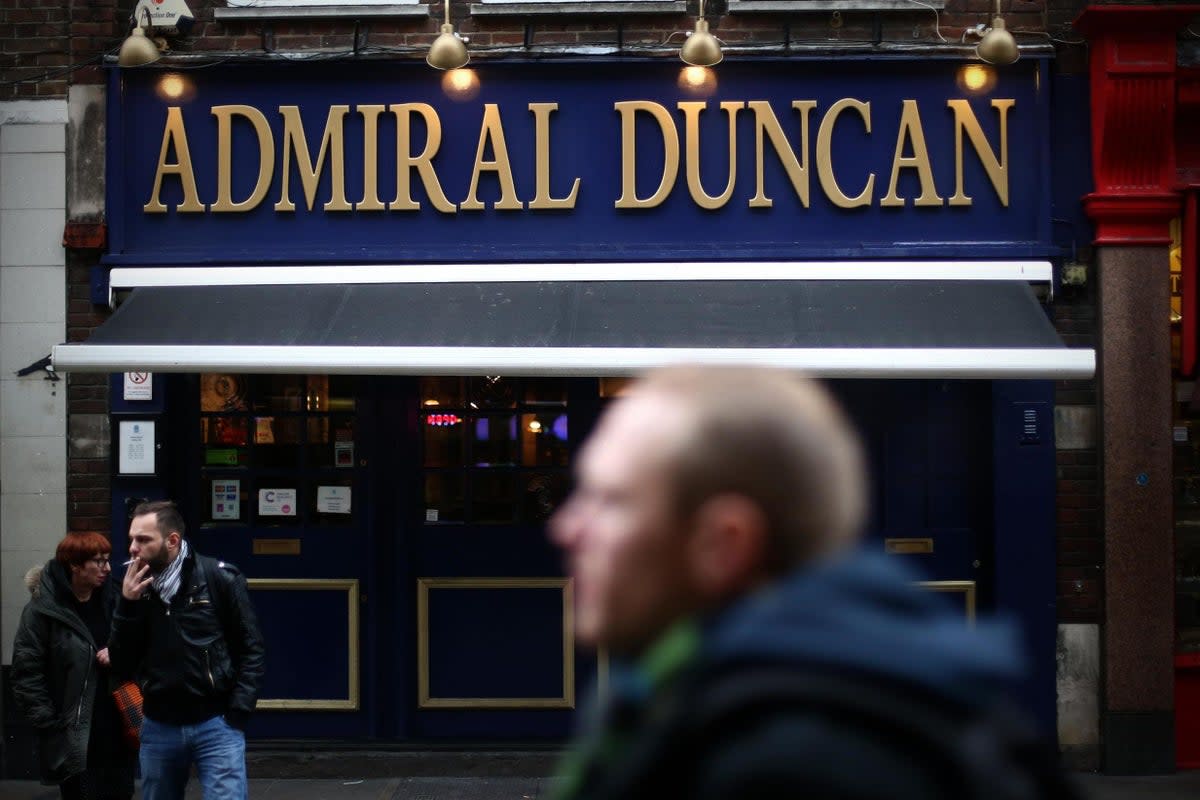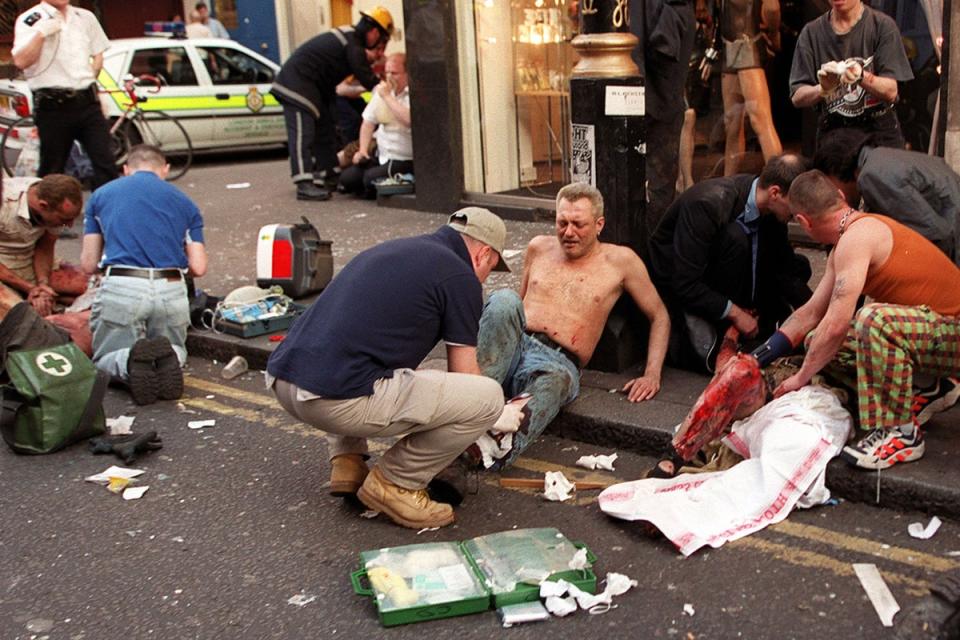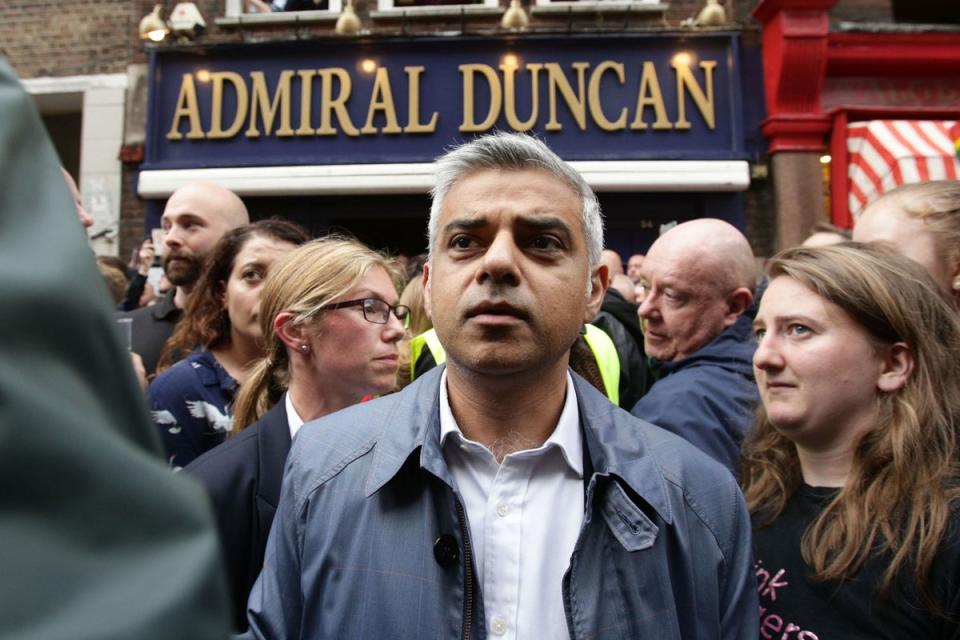London prepares to remember the 25th anniversary of deadly nailbomb attacks

The 25th anniversary of the Brixton nail bomb attack will be marked as part of a series of events commemorating the 1999 terror attacks across London.
Bombs were left in Brixton Market, Brick Lane and Soho over two weeks by right-wing fanatic David Copeland who targeted black, Asian and gay Londoners.
The attacks in Brixton and Brick Lane injured dozens of people and his final bomb, which was planted in the Admiral Duncan pub on Old Compton Street, killed three people.
Copeland was jailed for life in 2000 after the attacks.

All three attacks will be marked by acts of remembrance organised by the National Hate Crime Awareness Week (NHCAW) charity with the Brixton ceremony taking place at 6pm at the site of the bomb by the Iceland store on Electric Avenue at 6pm on April 17.
It will be followed by another event outside 40 Brick Lane in east London on April 24 before the event on April 30 where people will gather outside the pub at 5pm before walking along Old Compton Street to St Anne's Gardens on Wardour Street.
A spokesman for the charity said the purpose of the commemoration was to “remember those we lost, to stand by those affected by these attacks and educate future generations to eliminate all forms of hate”.

They added: “We have created a tradition of lighting three candles that represent the three people killed in Soho, and the three communities of Lambeth, Tower Hamlets and Westminster which were united by these horrific attacks.
“Volunteers talk to passers-by about what happened whilst handing out hate crime leaflets to encourage hate crime reporting. We listen to people, enabling opportunities for people to express their feelings and be signposted to organisations that can provide further advice and support.”


